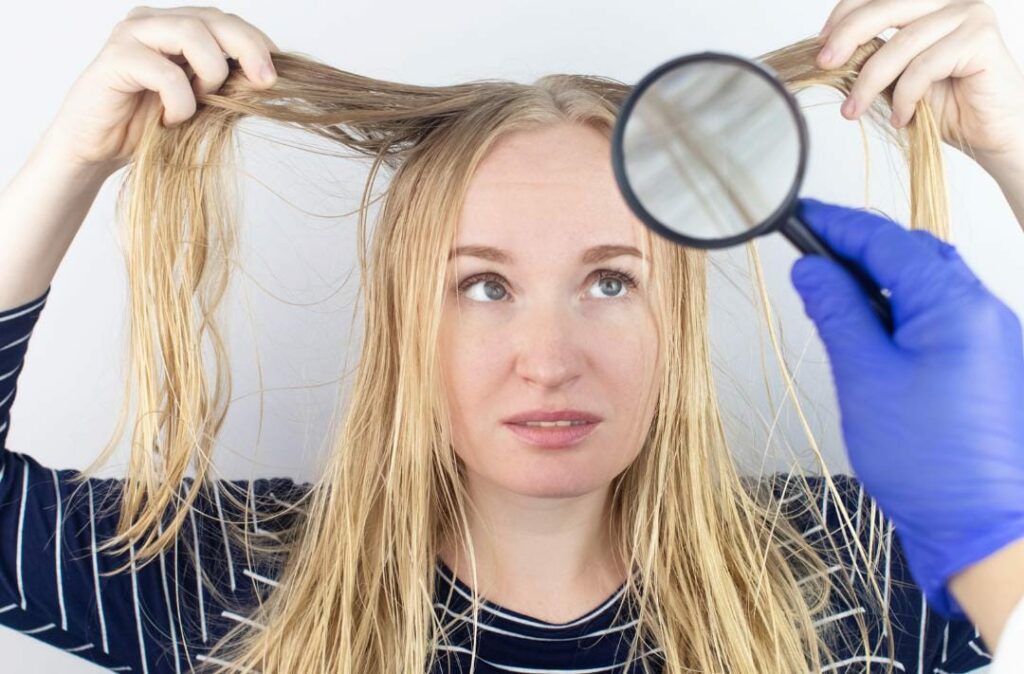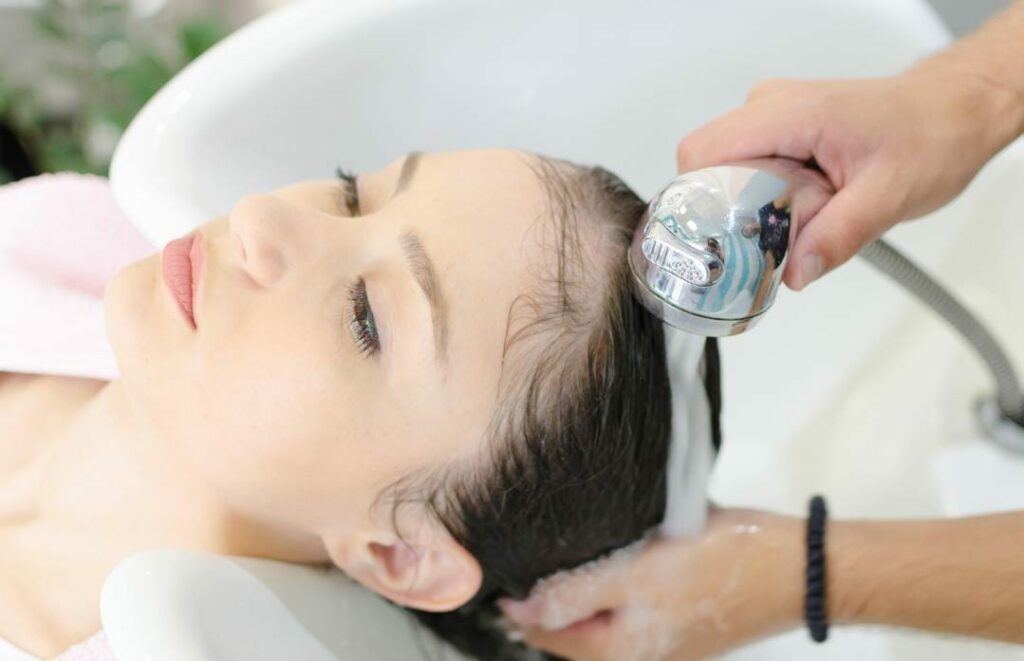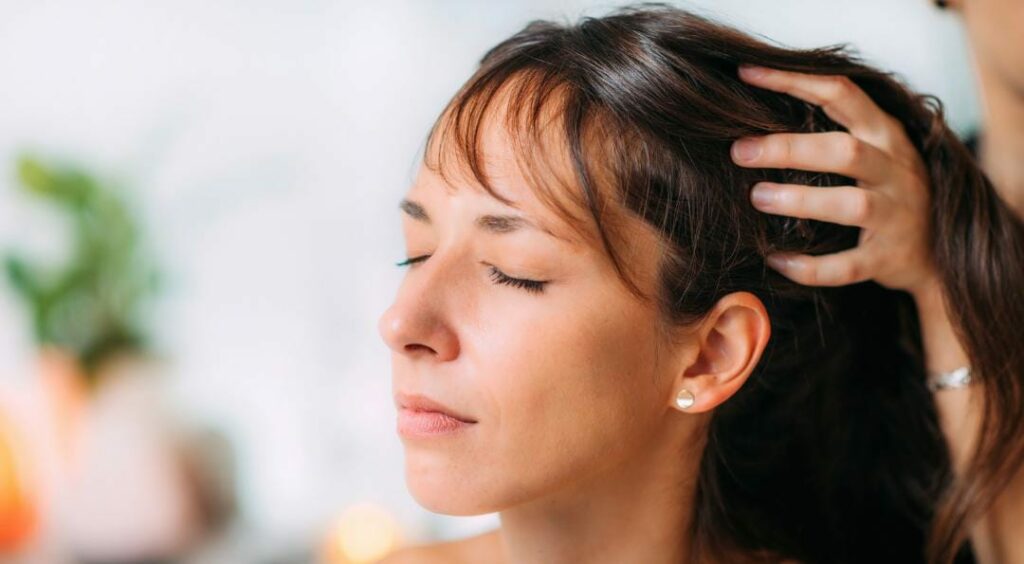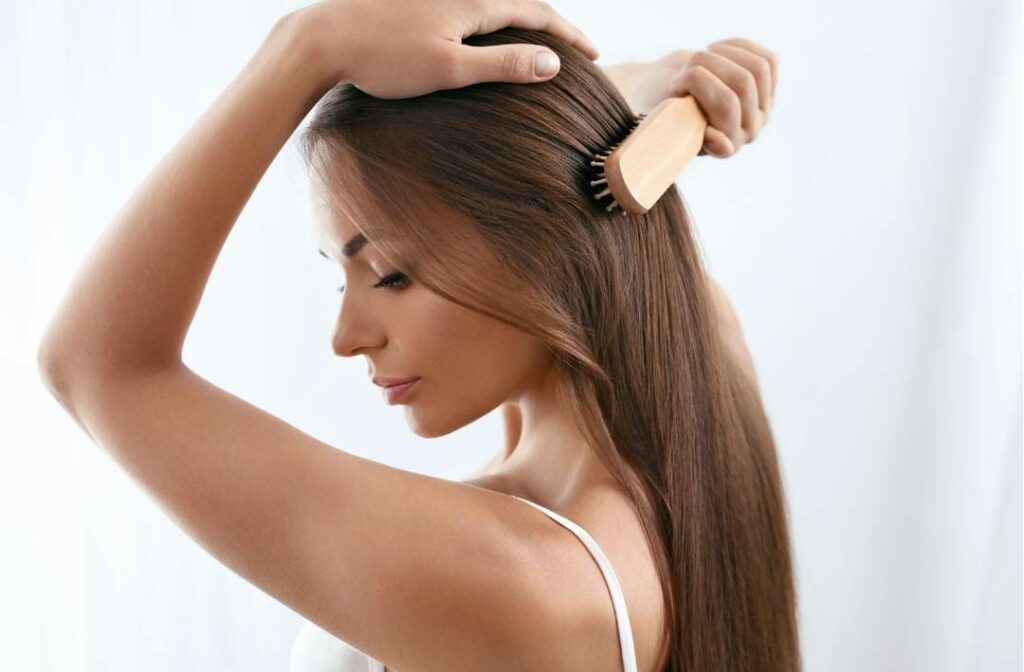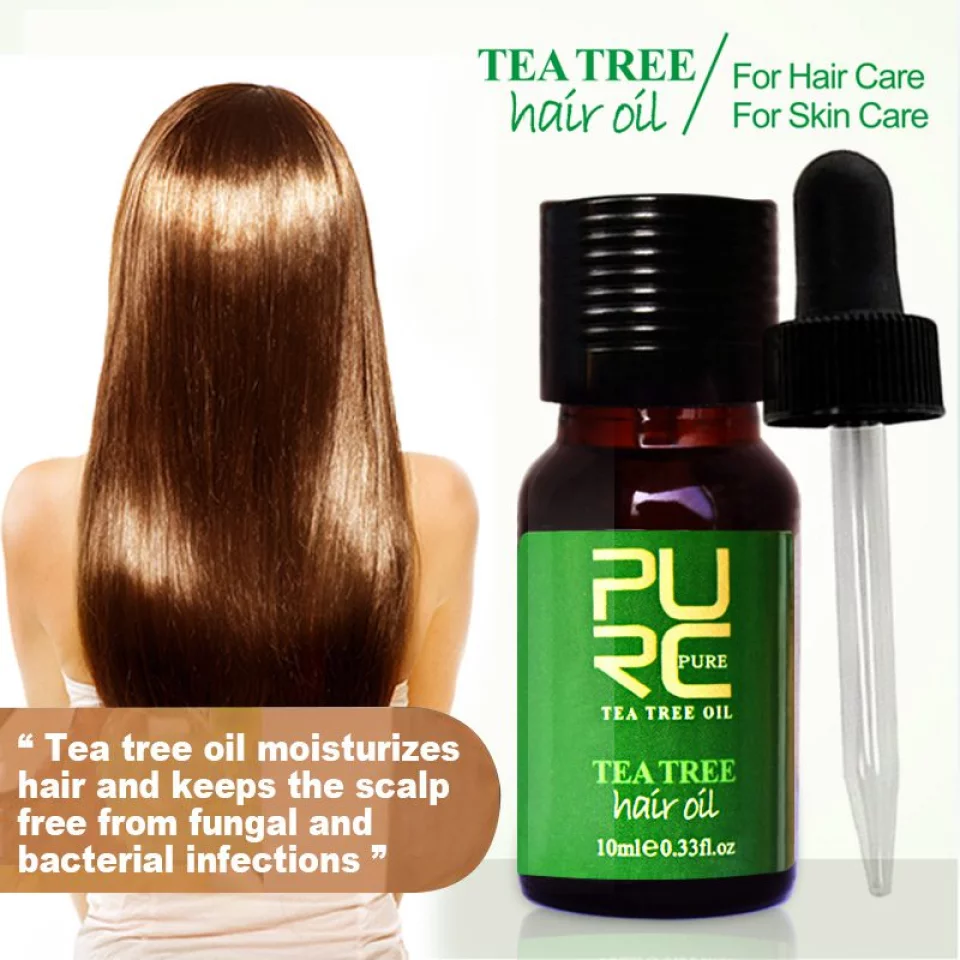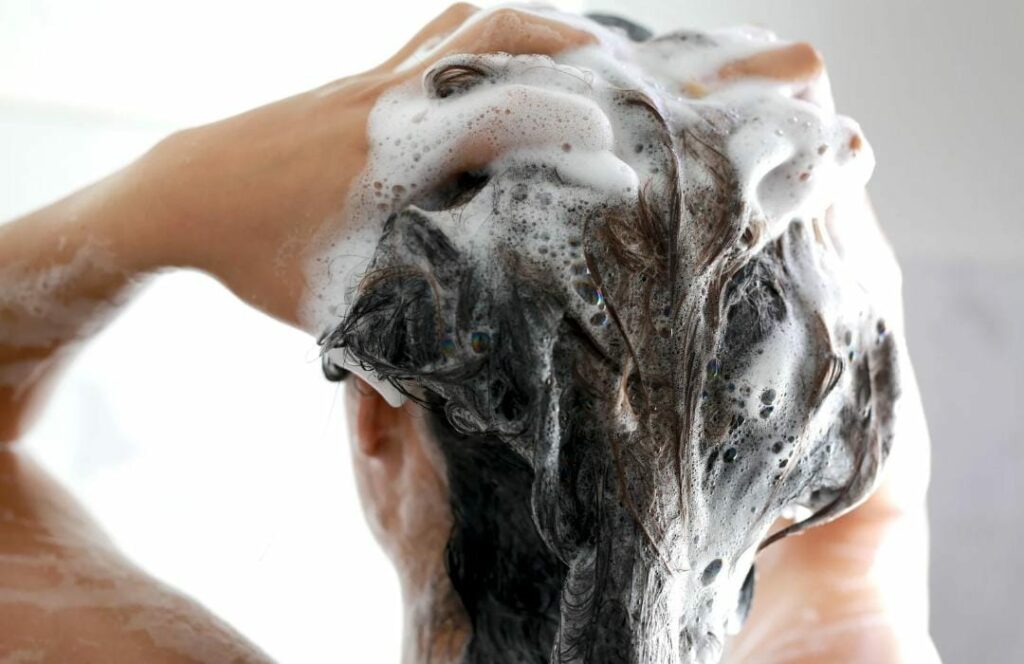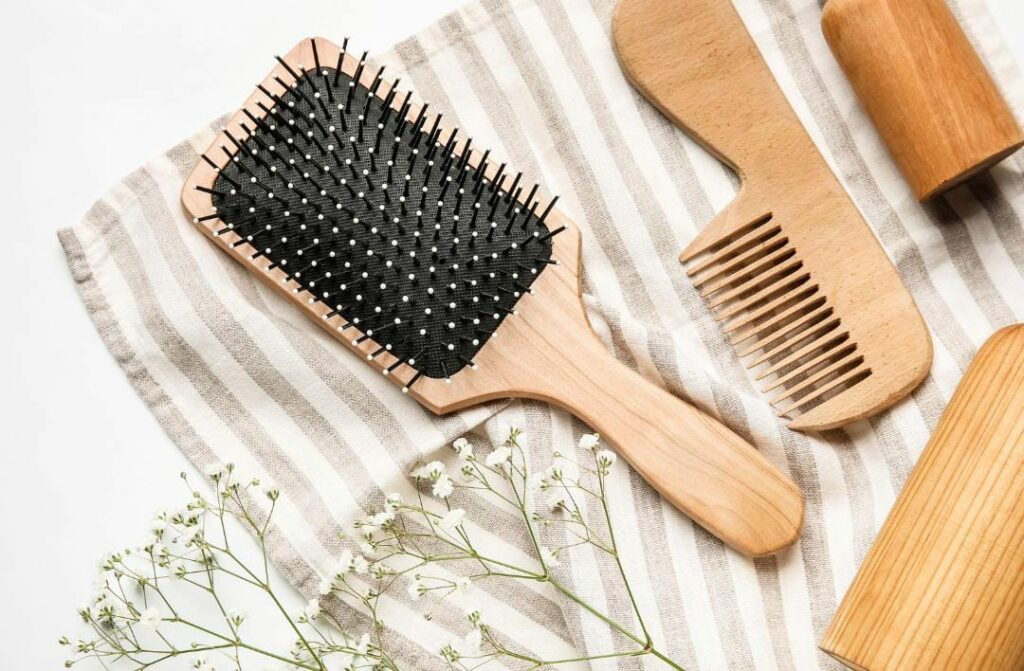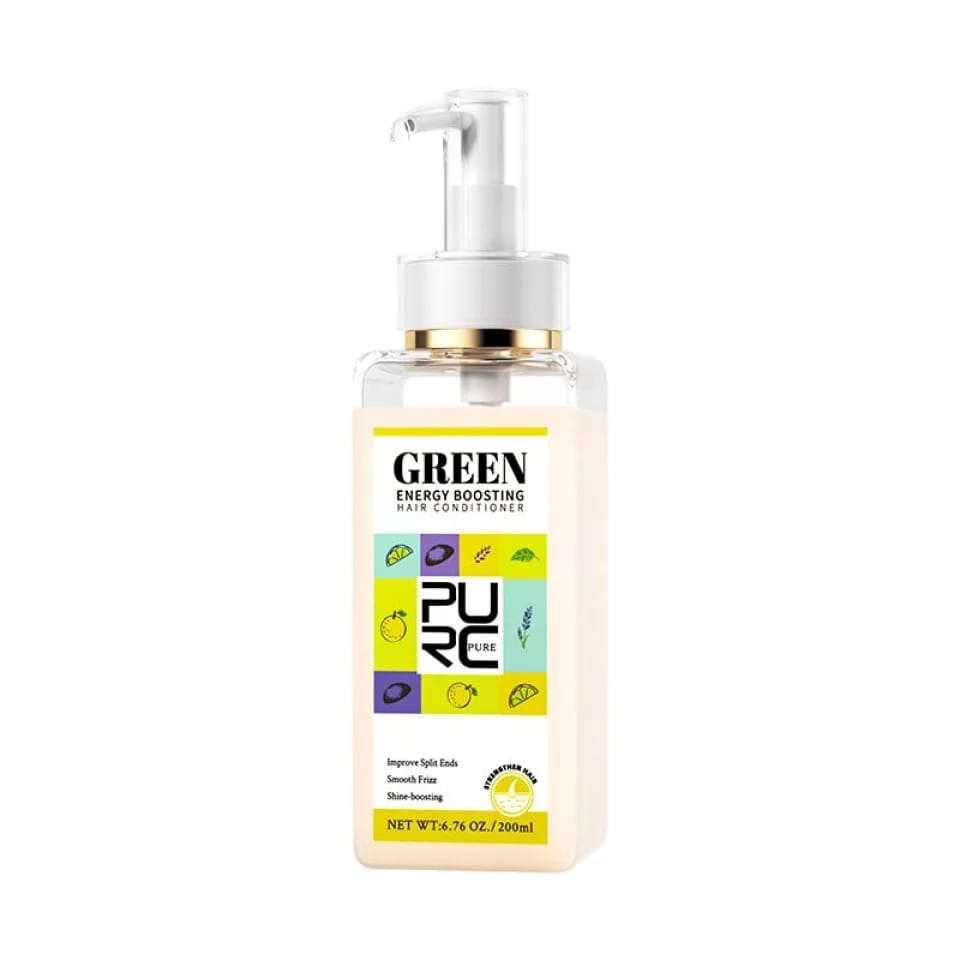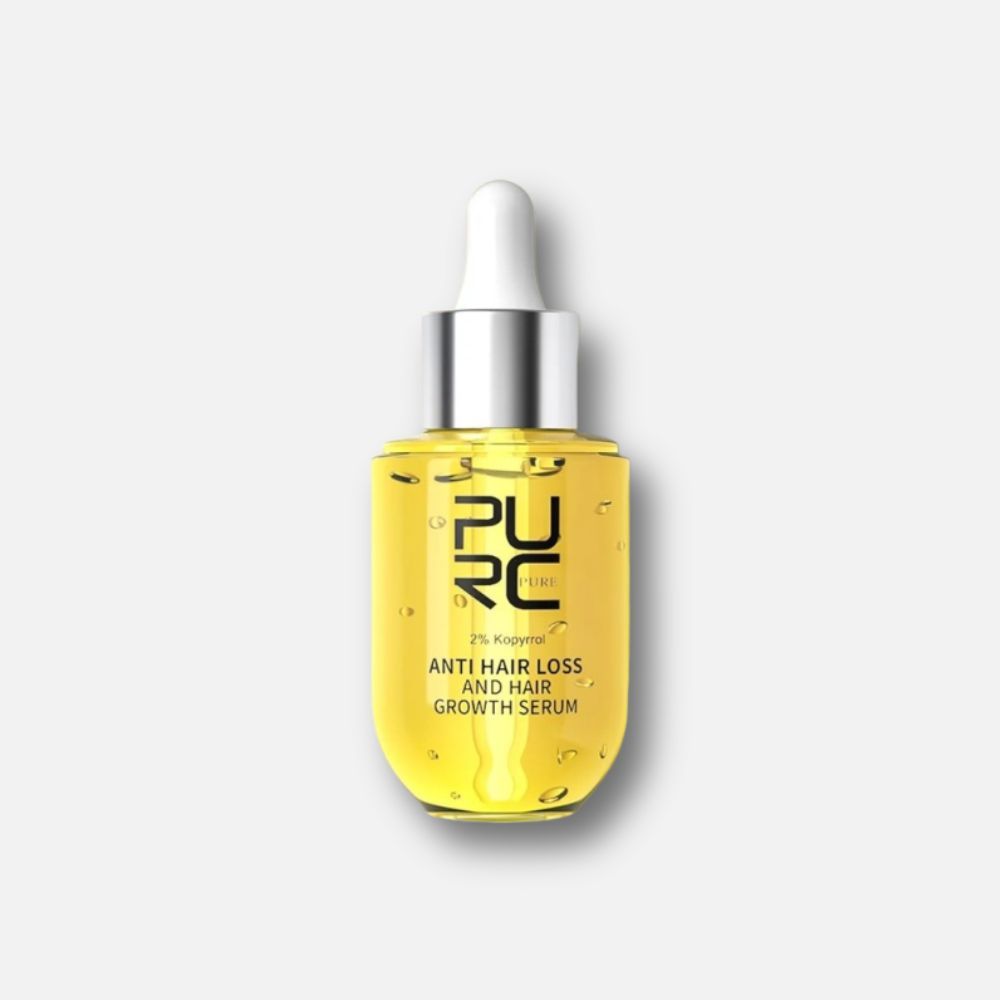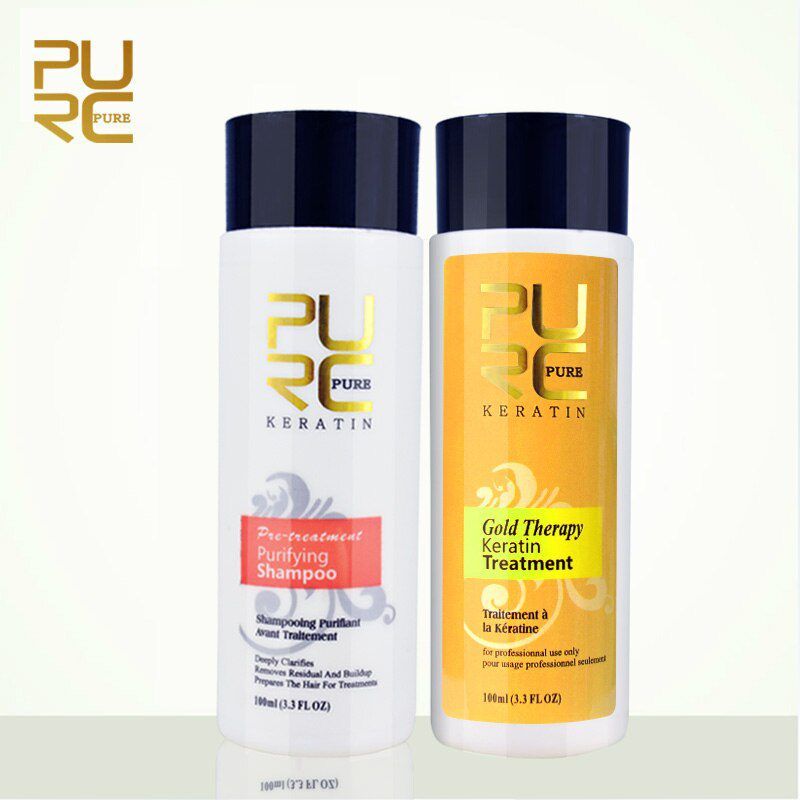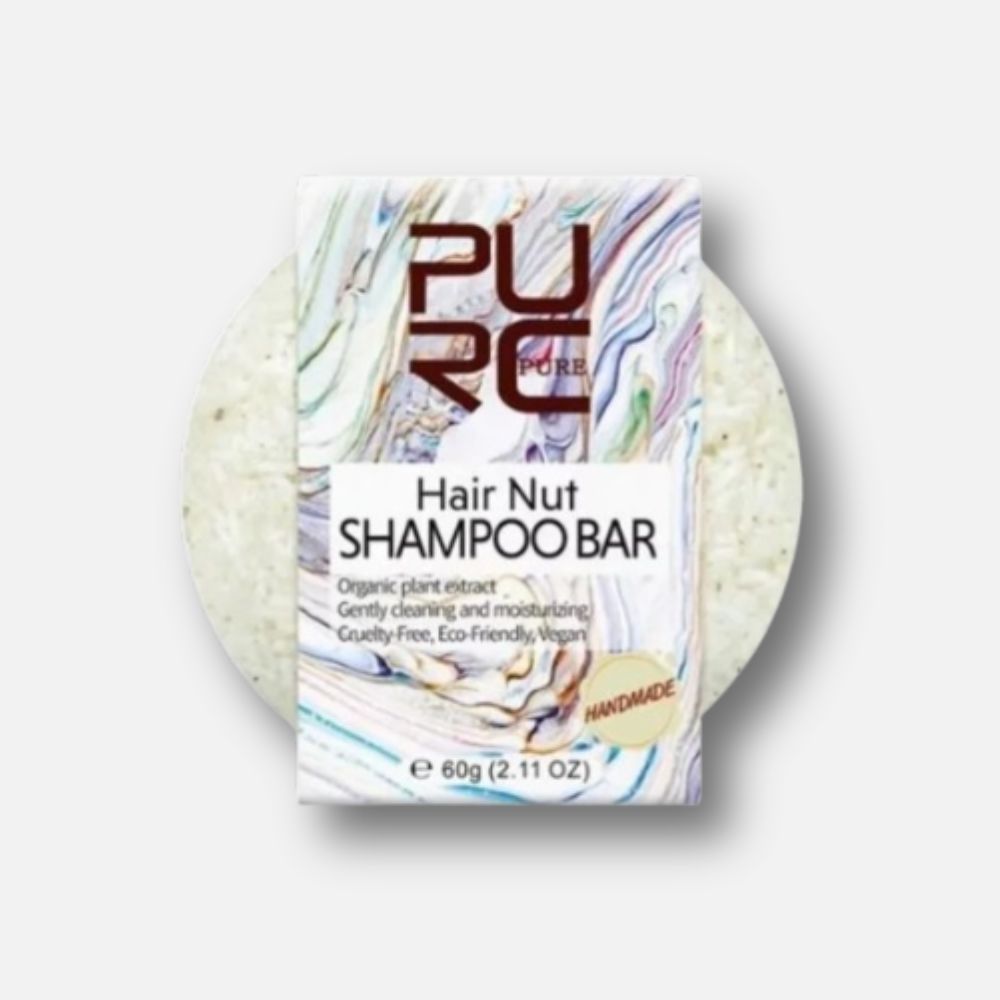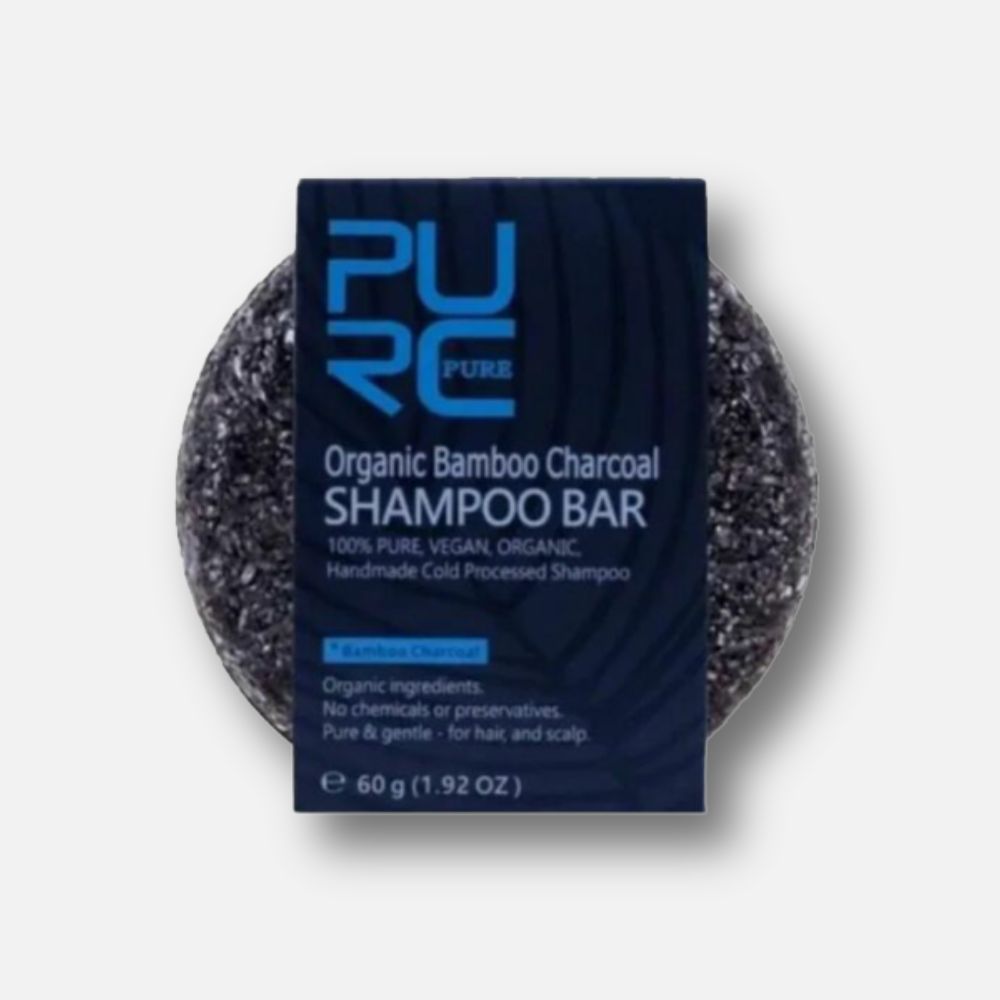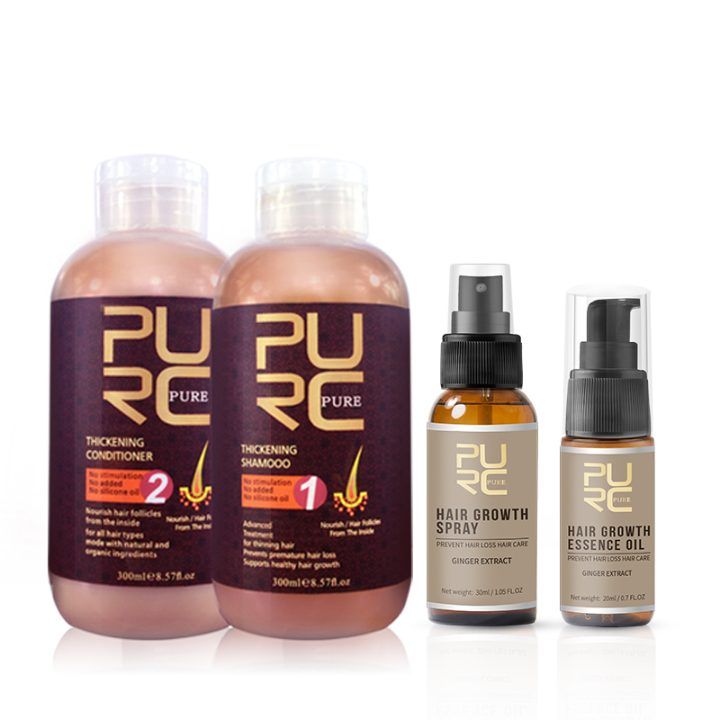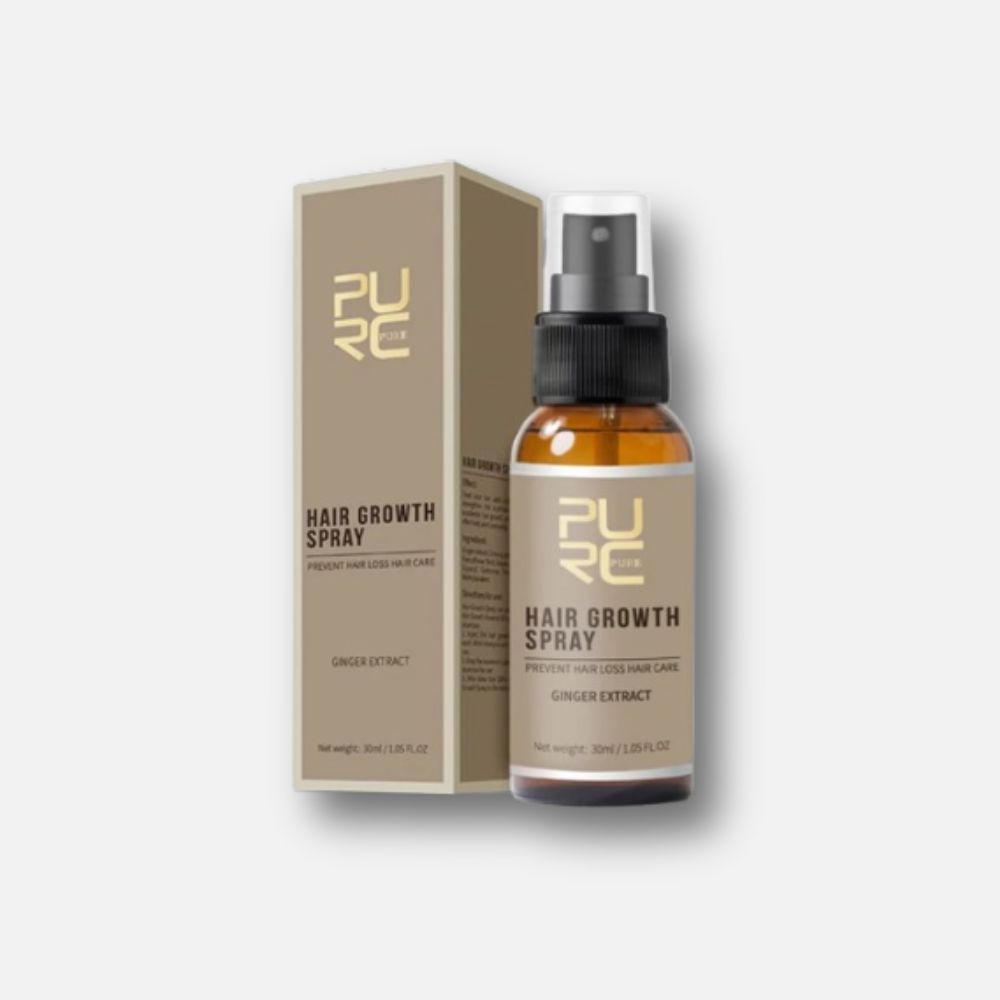Are Oily Scalp & Oily Hair Different?
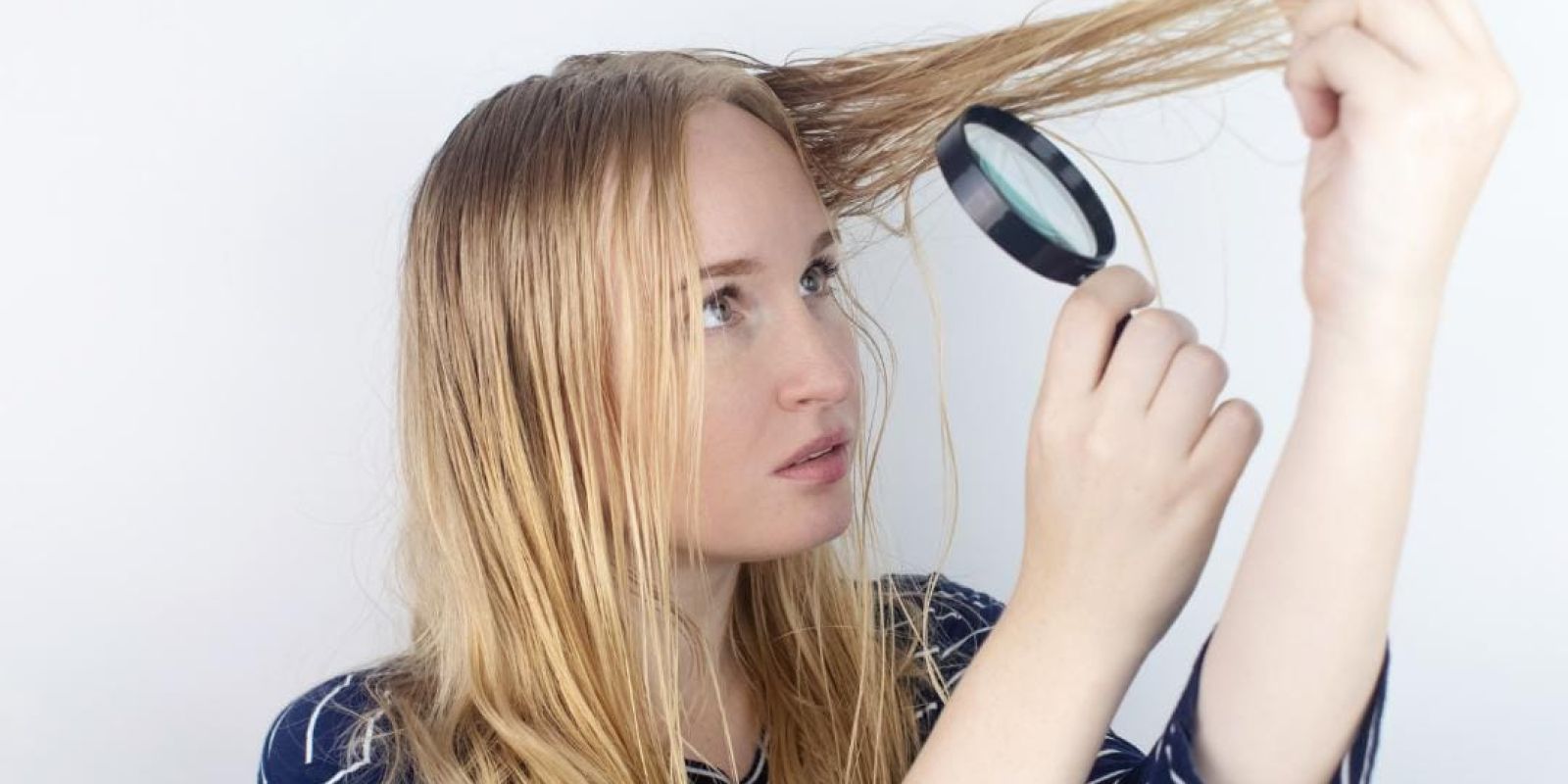
If you have ever felt like your hair is greasy and weighed down even after washing it, you might be dealing with an oily scalp and oily hair. These two different but related conditions can affect your hair health and appearance.
This article will explain what causes an oily scalp and oily hair, how they differ, and what you can do to treat them effectively.
What Is An Oily Scalp?
An oily scalp is a condition where the sebaceous glands on the scalp produce too much sebum, which is a natural oil that lubricates and protects the skin and hair. Sebum is essential for maintaining a healthy scalp, but when there is too much of it, it can cause problems such as:
1. Dandruff :
Sebum can mix with dead skin cells and form flakes that stick to the scalp and hair. This can make the scalp itchy and irritated and affect the hair’s appearance.
2. Sticky Hair :
Sebum can weigh down the hair and make it look greasy and dull. It can also attract dirt and bacteria, leading to infections and foul odors.
3. Hair Loss :
Sebum can clog the hair follicles and prevent them from getting enough oxygen and nutrients. This can weaken the hair roots and cause them to fall out more quickly.
What Causes Oily Hair?
Oily hair is a result of an oily scalp. The scalp produces a natural oil called sebum, which helps moisturize and protect the hair and skin. However, sometimes the scalp can have too much sebum, making the hair look greasy and dull. Several factors can trigger excess sebum production, such as:
1. Hormonal Changes :
Hormones can affect the oil glands in the scalp and cause them to produce more or less sebum. For example, during puberty, pregnancy, or menopause, hormonal fluctuations can increase sebum production and lead to oily hair.
2. Genetics :
Some people have naturally oily skin and hair, which means they are more prone to having oily hair. This can also depend on the hair type and texture. For instance, people with fine or straight hair tend to have more oil on their hair than people with thick or curly hair.
3. Lifestyle :
Certain habits and behaviors can also contribute to oily hair. For example, washing your hair too often or using harsh products can strip away the natural oils from your scalp and make it produce more sebum to compensate. On the other hand, washing your hair too rarely or not rinsing it well can leave dirt and residue on your scalp and hair, making them look oily.
4. Environment :
The climate and weather can also affect your scalp and hair. For example, hot and humid conditions can make your scalp sweat more and increase sebum production. On the other hand, cold and dry conditions can make your scalp flaky and irritated, stimulating sebum production.
How To Prevent Oily Hair?
The good news is that oily hair can be prevented and managed with some simple tips and tricks. Here are some ways to keep your hair fresh and clean :
1. Choose the Right Shampoo :
Use a gentle shampoo designed for oily hair or clarifying shampoo that can remove excess oil and buildup from your scalp and hair. Avoid too much moisturizing or conditioning shampoos, as they can weigh down your hair and make it look greasy.
Also, avoid shampoos that contain sulfates, parabens, or silicones, as they can irritate your scalp and cause more oil production.
2. Rinse Your Hair Well :
When you wash it, rinse it thoroughly with lukewarm water. Hot water can stimulate your scalp and increase sebum production, while cold water can leave residue on your hair. Also, remove all the shampoo and conditioner from your hair, as any leftover product can make your hair look oily and dull.
3. Condition Wisely :
Conditioner is vital for moisturizing and detangling your hair, but it can also make it look greasy if you use too much or apply it to the wrong areas. To avoid this, use a lightweight conditioner suitable for oily hair or only apply it to the ends of your hair. Avoid applying conditioner to the roots or the scalp, as this can weigh down your hair and make it look oily.
4. Avoid Touching Your Hair:
Touching it too often or brushing it too much can transfer oil from your fingers or scalp to your hair. This can make your hair look greasy and dirty faster. Try to avoid touching or brushing your hair unless necessary. If you need to style your hair, use a wide-tooth comb or a boar bristle brush to gently distribute the natural oils from your scalp to the ends of your hair.
How To Treat Oily Scalp?
An oily scalp is a common problem affecting your hair quality and appearance. It can also cause itching, dandruff, and other scalp issues. If you want to treat your oily scalp and have healthier hair, here are some tips you can follow.
1. Improve Your Scalp Barrier:
Your scalp has a natural protective layer that helps regulate oil production and prevent infections. However, this barrier can be damaged by harsh chemicals, heat styling, or over-washing. Use gentle shampoos and conditioners free of sulfates, parabens, and silicones to improve your scalp barrier. You can also use natural oils like coconut, jojoba, or tea tree to moisturize and nourish your scalp.
2. Have Better Wash Cycles :
Washing your hair too often or too rarely can contribute to an oily scalp. If you wash your hair too often, you strip away the natural oils and make your scalp produce more oil to compensate. If you rarely wash your hair, you allow the oil and dirt to build up and clog your pores. The ideal wash cycle depends on your hair type and lifestyle, but generally, you should wash your hair every 2-3 days with lukewarm water and mild shampoo.
3. Clean Your Comb and Hair Brush:
Your comb and hair brush can harbor bacteria, oil, and product residue that can transfer to your scalp and hair. To avoid this, you should clean your comb and hair brush regularly with soap and water or rubbing alcohol. You should also avoid sharing your comb and hair brush with others to prevent cross-contamination.
4. Apply Conditioner Carefully and Adequately:
Conditioner is essential for keeping your hair hydrated and smooth, but it can also weigh down your hair and make it look greasy if misused. To avoid this, apply conditioner only to the ends of your hair and prevent the roots and scalp. You should also rinse the conditioner thoroughly with cold water to seal the cuticles and avoid oil buildup.
Following these tips, you can treat your oily scalp and have healthier, shinier, and more manageable hair. Remember to be consistent and patient with your routine, as it may take time to see the results. You can also consult a dermatologist or a hairstylist if you have any questions or concerns about your scalp condition.
Conclusion
As you can see, oily scalp and oily hair are different but related problems that can affect your hair health and appearance. Oily scalp is caused by excess sebum production, while oily hair results from oil spreading from the scalp to the hair shafts. To treat an oily scalp, you must improve your scalp barrier, have better wash cycles, clean your comb or hair brush regularly, and apply conditioner carefully and adequately.
By following these tips, you can reduce the oiliness of your scalp and hair and enjoy a fresh and clean look. Remember, your scalp and hair deserve your attention and care!
About The Author







